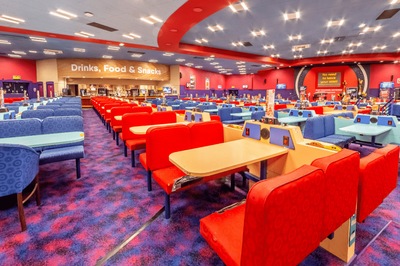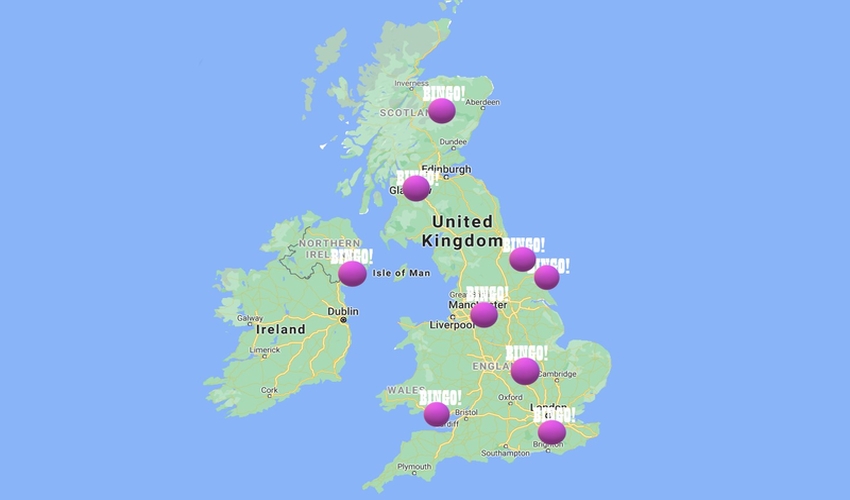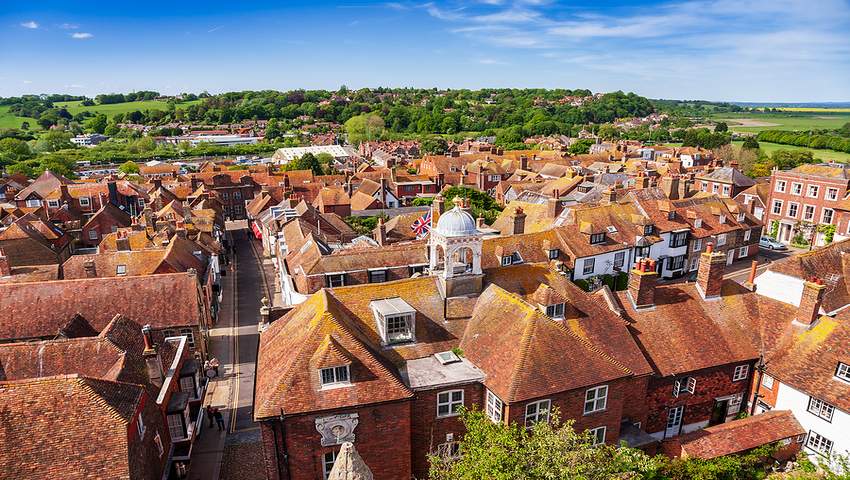 There are a lot of outdated stereotypes that make fun of our beloved game of bingo, usually having a bit of a laugh at the kind of people who play (old ladies obviously).
There are a lot of outdated stereotypes that make fun of our beloved game of bingo, usually having a bit of a laugh at the kind of people who play (old ladies obviously).
When you look at the areas of the UK with the biggest concentration of bingo halls though, some of these stereotypes actually ring true.
Some of our hardest working and most deprived towns are home to more bingo halls than some of our wealthiest and most prosperous.
But why is it that bingo is so much more popular in some towns and cities than in others? The UK isn’t that big a country, so why do tastes change so much from one place to the next when there is only maybe 50 miles between them?
This article will reveal the country’s most bingo mad places as well as the areas that bingo fans should definitely avoid unless they want a bingo detox.
Most Bingo Halls in the UK

Once upon a time there were around 1600 bingo clubs operating in this tiny country of ours, so almost no matter where you lived, there would be one not too far away from you.
The game has had a long fall since those days though, and now there are only around 350 halls left, but the exact number changes from year to year.
Unsurprisingly, the halls that are left tend to be located in areas where there are plenty of people to go along and buy tickets.
Sadly, the halls that close are the ones that don’t get enough customers, and that means that bingo lovers in small towns and villages are the ones who have suffered the most. Online bingo is brilliant, but we all love a live game from time to time don’t we?
That means then, that the areas with the most bingo halls include the busiest cities and the smaller towns around them:
| Area | Main Towns/Cities | Bingo Halls |
|---|---|---|
| London (inside M25) | Croydon, Watford, Romford | 32 |
| Tyne & Wear/County Durham | Newcastle, Sunderland, Middlesbrough | 28 |
| Greater Manchester | Rochdale, Oldham, Bolton | 18 |
| Greater Glasgow/Lanarkshire | Motherwell, Hamilton, East Kilbride | 18 |
| West Yorkshire | Leeds, Bradford, Huddersfield | 18 |
| Merseyside | Liverpool, St Helens, Southport | 17 |
| West Midlands | Birmingham, Wolverhampton, Coventry | 17 |
Another way of looking at this is by the number of bingo halls per head. That means we look at the population of each area and divide it by the number of bingo halls they have, and rank them in order:
| Area | Population | Bingo Halls | People per Hall |
|---|---|---|---|
| Glasgow/Lanarkshire | 946,499 | 18 | 52,583 |
| Tyne & Wear/County Durham | 1,663,000 | 28 | 59,394 |
| Merseyside | 1,423,000 | 17 | 83,705 |
| West Yorkshire | 2,325,000 | 18 | 129,166 |
| Greater Manchester | 2,822,000 | 18 | 156,777 |
| West Midlands | 2,982,000 | 17 | 172,235 |
| Greater London | 8,920,000 | 32 | 278,750 |
So even though London has the most bingo halls, it has the least bingo halls per head at 1 for every 278 thousand people because so many people live in the area, while Greater Glasgow and nearby Lanarkshire residents have 1 bingo hall for around every 52 thousand people, making it the bingo capital of the UK on percentage.
It’s interesting that even though the North East ranks second in the bingo halls per head table, they have the biggest number of bingo halls of any area outside of London. The reason they don’t beat Glasgow is that there are far more people living in the area.
Outside of these areas, Portsmouth and Southampton residents are fairly spoiled for bingo hall choice, and so are people around Nottingham, Edinburgh, and Dundee, but Hull has probably the greatest concentration of bingo halls in the smallest area, boasting 4 different venues in the town – lucky so and sos!
Wales is surprisingly empty apart from Cardiff and the South Coast which does ok and a few clubs dotted around on the North Coast, but that’s probably because a lot of Wales is made up of smaller towns and villages, so there aren’t enough people to keep a bingo hall open in most places.
We’re sure there are bingo nights held at all sorts of venues in these smaller Welsh towns and villages, churches especially, but there are no dedicated bingo halls.
We haven’t mentioned Northern Ireland yet, which does have around 16 bingo halls in operation, but apart from the 3 or 4 around Belfast they are all very well spread out and again, most of Northern Ireland is made up of smaller towns, villages, and farms.
Why are These Areas the Best in the UK for Bingo?
 Bingo is for everyone, and people from all walks of life love to play, but in most people’s eyes it is seen as a working class game.
Bingo is for everyone, and people from all walks of life love to play, but in most people’s eyes it is seen as a working class game.
The costs are low, the drinks are cheap(ish) and the prizes are often quite modest as well, even though they are lovely to win, so it’s not going to attract the la di da.
What all of these areas have in common is that they are traditionally working class places. The only area on the list in the South of Britain is London, for example, which is kind of separate to the rest of the UK anyway – all of the other areas are much further North. Compare house prices North of Watford to those South of it and you will see why this is relevant.
Without making you re-live history lessons at school; if you go back far enough you get a clearer picture. Manchester was all mill workers, Newcastle was coal, Glasgow was famous for ship building, and Birmingham is still known as the Black Country because of the smoke from all of the ironworks and forges back in the day. Liverpool had a huge cotton trade, but was also a key area for slavery, and London was so poor that Charles Dickens wrote books about it.
The point is, a huge part of the population in these areas come from working class backgrounds, and bingo is very accessible to people on working class incomes, not to mention the cultural side of things.
Fewest Bingo Halls in the UK

Well, if you have read the rest of the article it would make sense to assume the fewest bingo halls are in the South right?
Well, sort of.
If you head up to the Lake District in, past the Yorkshire Dales and the Pennines you won’t hear a bingo caller until you hit Carlisle – in fact the whole of Cumbria has only 3 bingo halls. If you go much further than Dundee in Scotland you can travel for days without hearing so much as a legs eleven or a key to the door, and as mentioned already, most of Wales is ghostly quiet on the bingo front.
Lincolnshire’s not much cop for bingo either on the whole, although he biggest towns all have one hall a piece and good old Grimsby is holding its own out there on the coast too; while Northumberland would be completely empty of bingo halls if it wasn’t for a few strays close to the border with Tyne and Wear, but even then there is only one club county wide.
There are some whole counties whose people are deprived of even a single bingo hall however:
- Cambridgeshire
- Pembrokeshire
- Argyll and Bute
- Powys
There may well be a few more too, not to mention these notably empty towns and districts that need some serious bingo attention:
- North Devon
- West Somerset
- North Norfolk
- Weymouth
- Tunbridge Wells
- Guildford
- Worcester
- Wrexham
- Chelmsford
- Royal Leamington Spa
- Macclesfield
- York
- Kendal
- Isle of Skye
- Isle of Man
- Winchester
- Wigan
- Lancaster
For some of these places, the dearth of bingo action is down to the people being too spread out. In a big crowded city a bingo hall only needs a very small percentage of the locals to turn up to stay in business, but in a small town it needs a much bigger percentage.
Another reason is the culture in these places. It’s hard to imagine the good people of Royal Tunbridge Wells heading out for a night of dabbing bingo tickets isn’t it, even though we are sure there are some people in the town who would love that. It’s a stereotype, but typically, in places where the house prices are eyewatering, bingo is a lesser spotted game.
